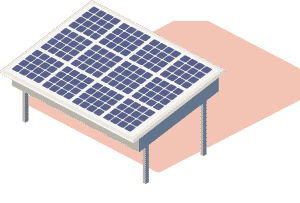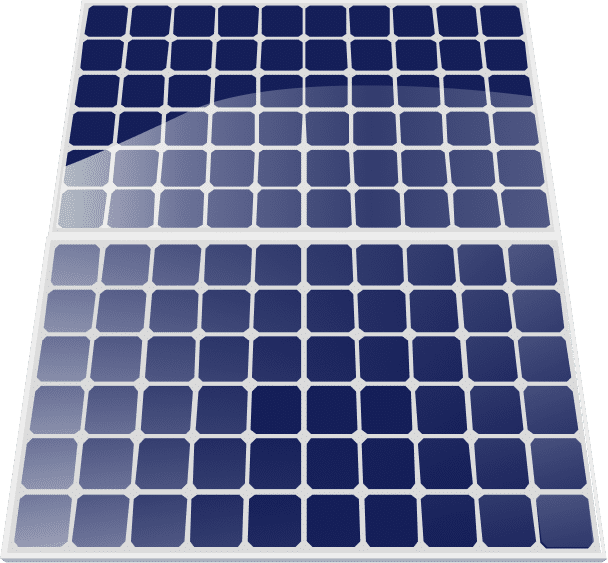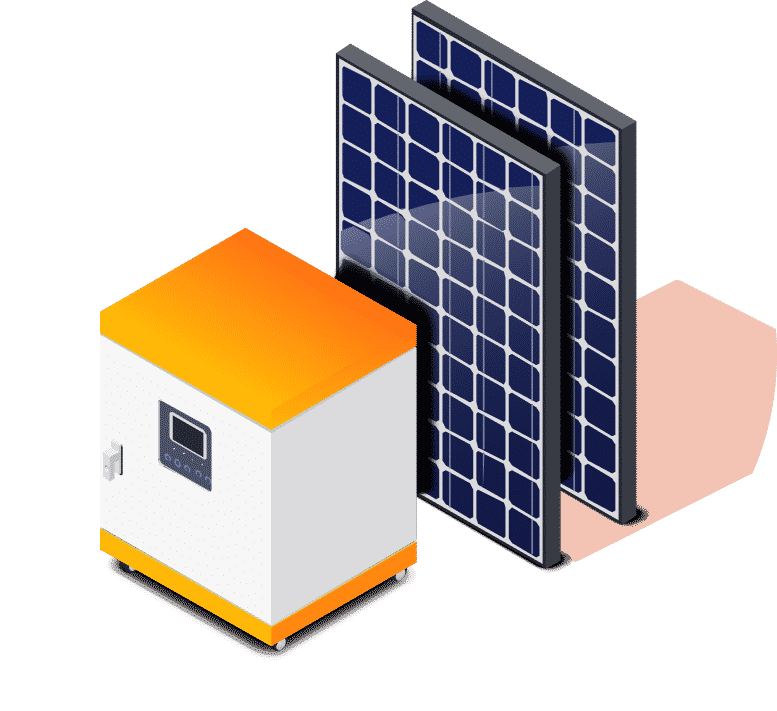What are the benefits to solar electricity?

What are the benefits to solar electricity?
It’s difficult to deny the significance of solar power. Going solar could bring significant returns for your money, and not only for financial reasons but also to improve the sustainability of our environment as well as public health. As people discover the many benefits of solar energy and cost of installation drop the solar energy market is becoming more popular with homeowners and business owners. We have many reasons solar energy is an ideal option for those who are interested about its significance.
The Evolution of Solar Energy
In the past two decades, the usage of solar energy has grown steadily. More and more people are recognizing the enormous advantages of solar panels. The demand for solar panels has risen between 0.34 gigawatts up to 97.2 during 2008, enough to power 18 million homes. The increased demand has led to lower costs. The cost of solar panels has fallen nearly 70% since 2014. In accordance with the US Department of Energy, at least seven percent of American homes will be equipped with rooftop solar PV systems by 2030.
What exactly is solar power?
The sun’s light is what leads the solar power. The sun powers our planet. It provides the energy necessary to protect our environment and increase our population, no matter whether you are aware of it or not. Sun’s power is sufficient to satisfy our every need. The US Department of Energy estimates that 173,000 terawatts of sunlight energy are absorbed by the earth each second, which is more than 10,000 times more than the total worldwide energy consumption. The sun can be used to produce electricity that is renewable, free and clean. Solar energy can be used to provide heat, light, and other electricity-dependent needs in homes and buildings.


Solar Panel System Benefits
Solar energy has many benefits. It can help lower your electricity cost, boost your home’s value, cut the carbon footprint of your home, fight the rising cost of electricity and even earn money back from your investments. However, solar energy has its drawbacks. It’s not suitable for every roof and it can cost a lot to set up.
Installing a solar panel in your home or business will provide you with many advantages. These are the most significant benefits of solar energy you should keep in mind.
- Solar reduces/eliminates electric bills
- Solar panels can increase the value of your home
- Going solar lowers your carbon footprint
- Solar panels can help you to avoid the rapidly rising energy costs.
- Solar investment can yield you money.
- Solar energy has many applications.
- You can sell solar power on the grid
1. Solar energy can dramatically reduce or eliminate your electricity bills
The top benefit of solar panels is in the ability to produce your own electricity and become less dependent on your electric utility. This can help lower your monthly electric bill. Solar panels last of between 25 to 35 years. This means that you can cut down on your electric bills for years. The price of solar panels has dropped by more than 70% in the last decade. However, the cost of electricity has risen by approximately five percent and this trend of rising electric costs will likely to continue. Going solar can help limit the rise in costs. This calculator will provide you with an individualized estimation of your long-term energy savings. Additionally, you can see the projected upfront costs and 20-year savings from photovoltaic with custom projections.

2. Solar energy can boost its value to your house
Millions of homeowners in the region are interested in solar panels but don’t have the time or the knowledge required to set them up. Recent studies have proven that solar panels can boost the value of a property. This is a reality for consumers. The other benefit of solar panels could be used to balance out the disadvantages that we have mentioned previously. Even if you don’t plan on moving soon your investment on solar panel systems will pay off when you decide to sell your home.
3. Solar cuts carbon emissions
It is a sustainable, clean source of energy that could reduce greenhouse gas emissions like carbon dioxide. It also helps to lower our impact on the natural environment. Solar energy is different from other fossil fuels such as coal and oil. It does not directly cause pollution (such such as carbon dioxide) to release into the atmosphere or the water supply. Solar energy is better to protect the environment than nuclear power.
5. Solar could earn you cash, while you earn the return on the investment you made
Solar panels can generate bill savings and make a profit thanks to the many great solar incentives available in the [xfield_state-abbreviation]. Net metering and solar renewable energy credits (SRECs) are just two of the major advantages that solar panels offer. They allow you to earn bill credits or even more cash as solar panels generate electricity. This is the scenario where you are paid for the power generated by the solar system. These incentives are offered within certain state. You can expect both short-term and long-term benefits from the solar investment.
6. The most versatile form of alternative energy is solar.
Solar energy can be used in almost every environment, in contrast to other forms of alternative energy like wind energy, which requires huge open spaces and extreme wind changes. Solar energy is a versatile alternative to renewable energy. Although solar panels produce less power in cloudy weather and in areas that don’t get the same amount of sunlight, they are still able to work. Solar power is a great investment, regardless of where you live.
7. You can sell solar power back to grid
You may be eligible for net billing depending the location you live in. Net metering, an electrical billing tool, stores excess power generated by your solar panels. Net metering gives you credit for the energy that your solar panels generate, but you do not use. You may be able to receive credit on the cost of energy you don’t utilize and, in essence you can sell the solar energy back to the grid that supplies electricity.
Who benefits from solar energy?
Solar power systems produce clean, pure power from the sun. They can also be installed on your home to reduce greenhouse gas emissions. Traditional electricity comes from fossil fuels, such as coal and natural gas. In order to produce energy, fossil fuels emit harmful gases that are the primary reason for global warming as well as air pollution. The fossil fuels are not just detrimental to the environment, but are also a resource that is finite. That’s why the cost fluctuates and is prone to increase quickly.
Health of the public is also improved by renewable energy. The natural gas as well as coal plants produce polluting air and water that is harmful to the environment. However substituting fossil fuels with renewable energy sources such as solar power could help lower premature deaths and increase overall healthcare costs.
Although fossil fuels consume significant water resources, and could create water pollution, solar power requires very little or no water in order to function. Solar power doesn’t pollute water resources and it doesn’t strain the world’s water supply.
Even in extreme droughts or heat waves solar power can be used. Coal, natural gas and nuclear power require huge amounts of water to cool. Electricity generation is vulnerable to extreme heat and droughts as we have seen in recent years. Solar power systems don’t need water to produce electricity.
Solar power can also generate jobs in clean energies. The [location] has been a leading player in the field of clean energy. Innovative and forward-thinking companies will continue to take advantage of the ever-changing landscape of energy production and transition to renewable sources.
If you’re building a greenhouse, you might consider checking out the following LEED credits such as the solar orientation of solar panels, passive solar{
How much money can you save?
It is possible to estimate the amount of energy savings each year by knowing upfront how much a solar power plant will cost as well as the amount of energy it will generate.
This calculation is tricky because it all depends on what you are paying for electricity. Utilities charge residential customers a fixed amount for electricity, regardless of the time they are using them. Instead of compensating for the high cost of peak electricity production for homeowners solar power systems, they are used to offset the electricity price that customers pay. This is in line with the average price for electricity generation.
Many [xfield_state-abbreviation] utility companies have implemented pricing systems that allow homeowners to pay different rates throughout the day to reflect the cost of electricity production. This is why there are more expensive rates for the afternoon, and lower rates during the night. A region with this kind of variable rate might find it beneficial to install an array of PV solar. Solar power could offset the most expensive electricity.
It will be contingent on how many rate changes are allowed under the plan, as well as the timing of them. Similar pricing plans are utilized by utilities in particular regions. These rates can vary according to the seasonal fluctuations in demand. Solar power is more expensive if it is able to offer higher rates during summer.
The Tiered Pricing Plans are utilized by some utilities to adjust the cost of electricity as consumption increases. This strategy allows the benefits of solar systems to be based on the amount of electricity is used. In certain areas, rates increase dramatically as people consume more. Homes with huge energy requirements may be most in need of solar panels that can offset costs of consumption.
It could be possible for some homeowners to sell solar power back into the grid to make money. This is called net meters in the location. Residential customers use the electricity they generate through the solar array to offset power consumption elsewhere. Monthly electric bills are a measurement of the amount of energy consumed. There are different guidelines and policies regarding net metering that apply to every region. For more information homeowners should go to the database. They should also contact the local utility.
How does solar energy impact the world of
Community-based solar projects may also generate positive social benefits like lower heating costs for low-income individuals, less dependency of public utilities as well as a cleaner environmental impact due to less pollution, and the creation of jobs.
